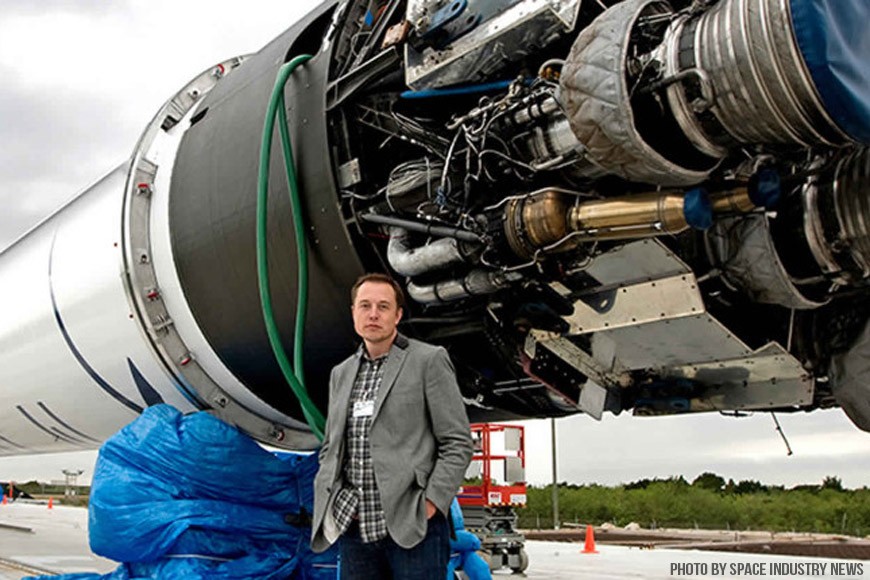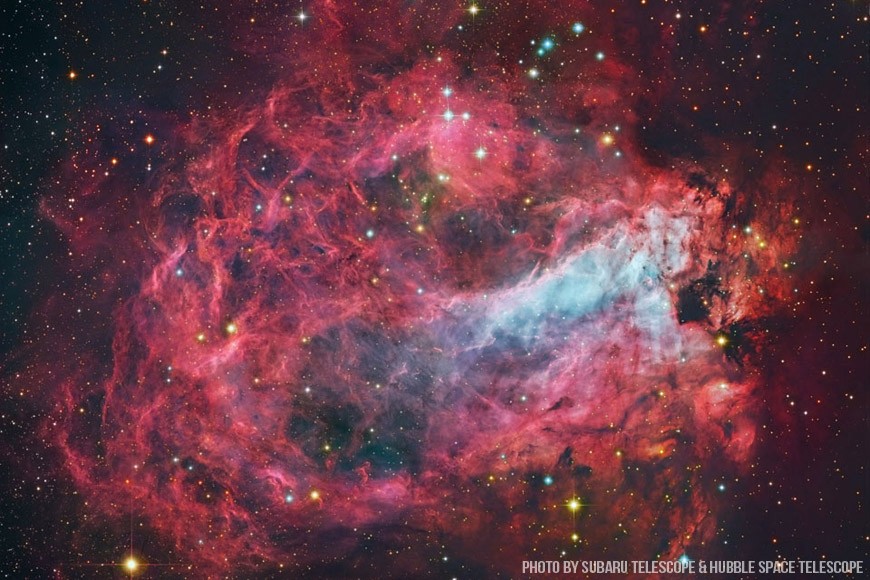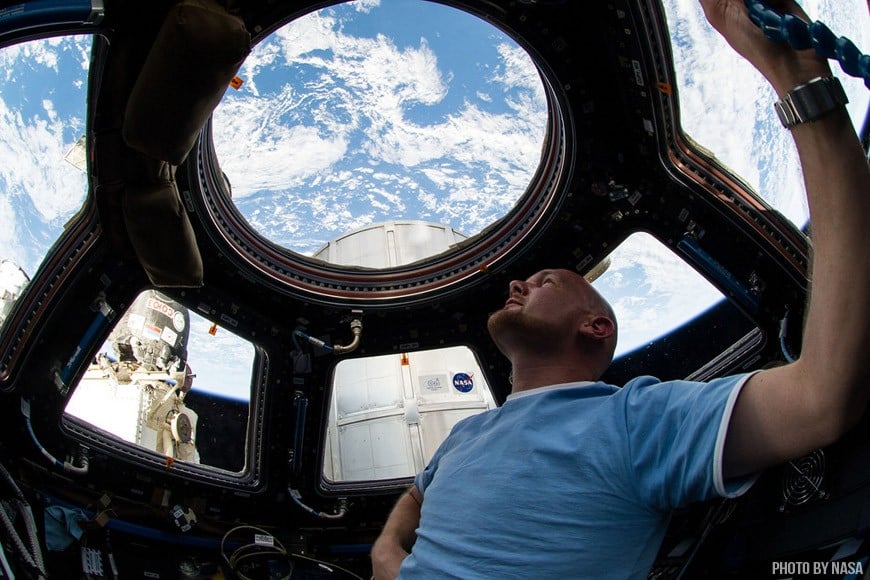The acronym NASA, short for the National Aeronautics and Space Administration, has come to be synonymous with space exploration since Dwight D. Eisenhower established the administration in 1958. Since its creation, endeavors through NASA have led to a greater understanding of what lies in the vastness beyond Earth’s atmosphere, and the Hubble telescope (launched in 1990) has already reshaped what we once knew about the universe.
Nicho Onufer, an aerospace engineer at NASA’s Jet Propulsion Laboratory who worked on building the Mars Rover, feels that NASA’s most notable achievement was the Apollo landings. They “not only inspired, but united the world like never before,” he tells MiLLENNiAL. “Aside from this, I would argue that the greatest successes in space exploration have been those which have expanded our knowledge and understanding of the world around us and universe above.”
Although it is the government agency spearheading space missions, NASA is not the only company headed for space and often cooperates with a variety of other organizations such as Virgin Galactic to bring the first research load into space. But what sets NASA apart from the others is that it does not seek to turn a profit. Onufer notes that because they are profit-driven, “private space firms’ missions are primarily directed towards economically viable and sustainable products [such as] launching payloads into low earth orbit or mining near Earth asteroids.” Because their main goal is to make space accessible through a viable business model, “their focus currently isn’t on expanding our knowledge of the universe like NASA.”
Along with Virgin Galactic, Space X is another private company specializing in the engineering and innovation of spacecrafts. All three companies work together in some way or another. Dragon, one of the spacecrafts created by Space X, has delivered cargo to and from the space station multiple times, providing regular cargo resupply missions for NASA. The first time Dragon successfully completed one of these missions was in 2012. Space X has a $1.6 billion contract to complete at least 12 future cargo resupply missions. Additionally, under a $440 million contract with NASA, Space X is working on making their Dragon spacecraft suitable for transporting crew.
What’s In Store for NASA?
Recently, the government slashed the budget allocated to NASA endeavors. However, many of these funds will be restored thanks to a 2015 budget passed by the House of Representatives. The reasoning behind the initial budget cuts remains rather mysterious. According to Phil Plait, an astronomer and writer, “What’s good about the House budget is that it puts back in a lot of money the White House took out… I really wish the White House would stop screwing around trying to cut one of NASA’s most successful and highly visible programs! The bill specifically outlays $100 million for the development of a mission to the icy moon Europa, which is simply fantastic.”
Onufer believes that, “the greatest threat facing NASA and its investments in private space firms is likely the future uncertainty in government funding. Even though NASA’s budget is relatively small, it must compete with numerous government organizations and justify its existence to its critics.”
Booking a Flight with Virgin to…Space?
Richard Branson started Virgin Galactic, a British-owned commercial spaceflight company based in the United States. CEO George Whitesides says, “With each flight test, we are progressively closer to our target of starting commercial service in 2014.” Surprisingly, Virgin Galactic is just one of numerous private companies with the goal of commercial space flight in mind.
The Importance of Space Exploration
The discoveries made by spacecrafts observing our universe are paramount in importance. By learning about planets, stars, black holes, and other phenomena beyond Earth’s atmosphere insights about life, its origins, and possibly the future of our planet are gained. As historian Stephen J. Pyne stated, “Exploration is a specific invention of specific civilizations conducted at specific historical times. It is not … a universal property of all human societies. Not all cultures have explored or even traveled widely.”
Some question whether or not it is ethical to explore space, which costs billions of dollars, when there are still so many pertinent issues on Earth that need solving. However, Onufer points out that although the public tends to think otherwise, the amount of the federal budget dedicated to NASA is “only a fraction of 1% of our national budget. This alone doesn’t justify NASA’s existence, but its return on investment through countless technological innovations, improvements in our quality of life, and its inspiration to generations of youth to pursue careers in science and technology has made it an invaluable asset to our nation at a minimal cost.”
Cliffnotes points out that space exploration led to the creation of a surprising number of devices we use on a daily basis such as calculators, cell phones, Teflon, Velcro, and water-purification systems to name a few. Along with these everyday products, Onufer notes that “there are countless NASA projects which remotely monitor the Earth and allow us to better understand the world around us and how we’re impacting the environment. These spacecraft monitor everything from global CO2 emissions and sea level rise to precipitation and soil moisture levels, all of which directly impact us one way or another.”
In the near future, the space program is expected to improve our knowledge of solar energy power, cryogenics, and robotics leading to improvements in health care, energy and the environment, everyday technology, and other areas.
According to Air & Space magazine, “In announcing his commitment to send the country back to the moon and, later, on to Mars, President Bush quite correctly said that we do it for purposes of scientific discovery, economic benefit, and national security.”
Would the Death of NASA Mean the Death of Human Curiosity in Space Exploration?
“Astronaut” is easily one of the top five answers of kids when responding to the age-old question “what do you want to be when you grow up?” Yet, with the uncertainty of the amount of money that will be allocated to space exploration in the future, will this dream of children worldwide dissipate? Onufer strongly believes that the “mystery and vastness of space alone is sufficient to influence and inspire children to explore worlds beyond our own.” However, he emphasizes the importance of organizations like NASA allowing these dreams to morph into reality.
“If government funding in NASA were to cease at this time, NASA’s investments in private space ventures would likely dry up as well. This would therefore impede further private exploration of space and with it the dreams and aspirations of our youth.” He personally grew up with a fascination of flight, “whether it was building miniature model rockets or flying in giant jumbo aircraft. The intrigue of aviation and my inquisitive nature naturally led me into this industry and ultimately to NASA and JPL as an Aerospace Engineer.”
Hopefully, as the public’s knowledge about the importance of space exploration increases, the need to continue funding NASA’s endeavors will become more obvious.




